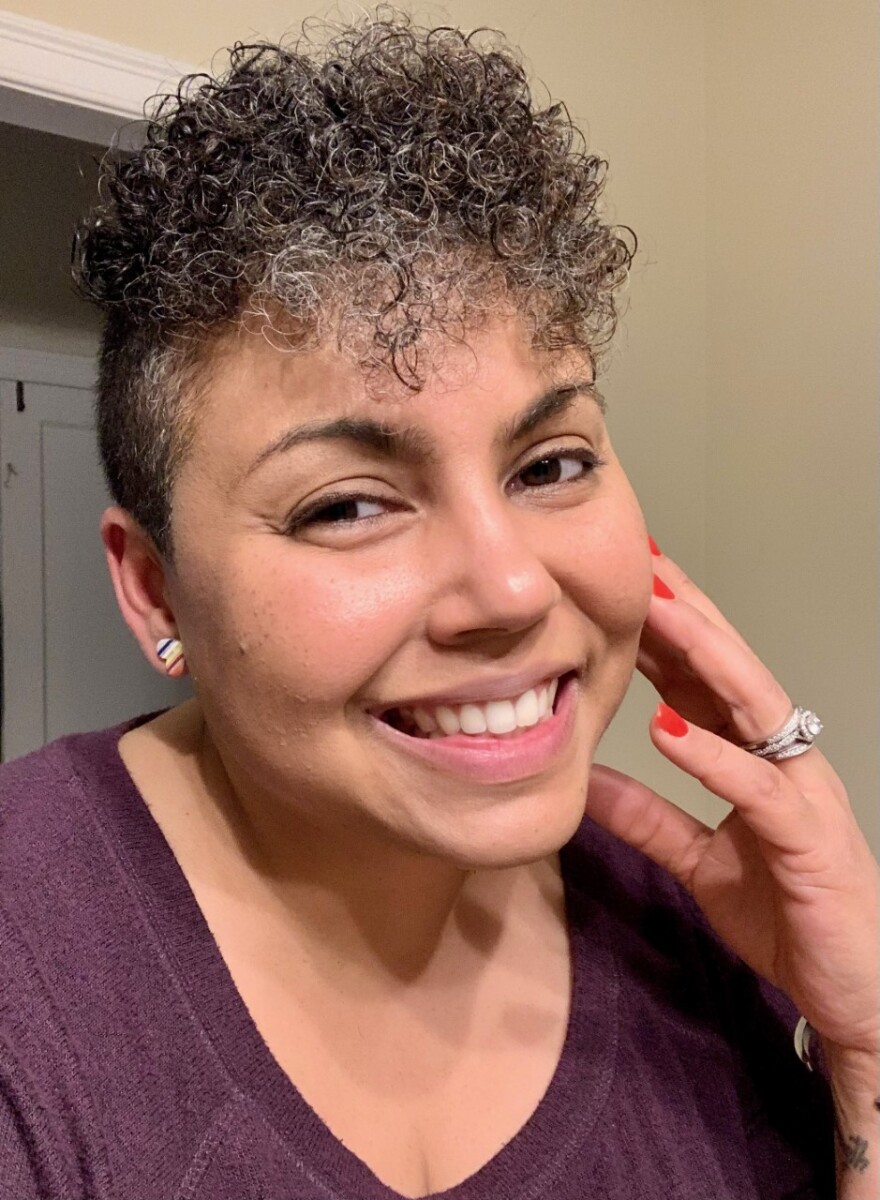With Valentine’s Day around the corner, we’re reflecting on how love and friendship have changed two years into the pandemic – where social distancing, isolation and fear of sickness have caused people to move away from each other.
How has the pandemic changed the way we start and foster romantic relationships and friendships? What has it taught us about self-love?
To answer these questions, we talked with Mayrena Guerrero, a licensed mental health counselor from Northampton, Massachusetts.
Four things we learned:
- On the positive side, the pandemic has made people less individualistic and more aware of the need for a support team.
- To meet someone, drop an absolute mentality of everything or nothing and explore possibilities: can a friend of mine introduce me to someone?, where can I meet someone virtually? COVID-19 hasn't made meeting people impossible.
- There’s more than just romantic love: there’s self and community love. During times of solitude, we have to reflect on our relationship with ourselves and practice self-care habits.
- Remember that love is about connection with the community, family, friends – relationships that also require attention and commitment.
This interview has been edited and condensed for clarity. You can check out the original interview in Spanish that NHPR’s Qué Hay de Nuevo team did with Mayrena Guerrero here.
The importance of our support group and how to foster those connections more during this time:
“Everyone is going through a pandemic. It has been a situation of survival, not only physically but mentally, emotionally,” Guerrero said. “The best attitude to foster is to think that everyone is doing their best. Everyone relies on each other. So, we all deserve to be valued.”

Isolation and loneliness have been acutely felt by many in the past few years. Guerrero, who primarily works with the Latino community in Northampton, Mass., said that one’s community context also had an effect on those feelings.
“There are a lot of Latinos in the United States that gravitate to [the] Latino community. So, there is less isolation in that situation,” she said. “But, there is a group of Latinos that arrived on their own and couldn't count on their community, so when the pandemic came, they found themselves completely alone.”
She says if empathy in a community was strong before the pandemic, it’s likely the empathy grew stronger. But in more individualistic communities, it became “more about me, me, me. Then there is no empathy.”
On cultivating self-love, especially during holidays that focus on romantic relationships:
The first thing is to think of love as an internal situation, Guerrero said. In that mindset, you can reflect on your relationship with yourself. You can practice self-care habits, for example, “I’ll clean my space because if I do, I’ll feel better,” “I’m getting myself a manicure,” for example, “I´ll read a book … I haven´t read in a while and I loved to read so I’m going to do it now.” Those are practices you can do.
Another thing is that if you feel lonely, it's good to understand that love is not only about romantic love or self-love, but community love. Connections with friends, relatives, people, co-workers. Let's share some love by sharing details that show how you appreciate that community, those connections that surround us. For example, a letter or a chocolate or even a word: “Look, I really appreciate working with you. I always feel supported when working together. Thank you.”
Challenges for long-distance relationships (familial, friendships, romantic) and ways to foster connection in those relationships:
Guerrero said travel restrictions in the past few years have been hard for some of her clients, many of whom have relatives or loved ones in another country.
“I talk about ways they can keep connected with [loved ones],” she said. “So, let's call them, let's video chat. There are things that you can do long-distance to spend time with loved ones. For example, you miss your brother? Both of you play video games? Suggest playing video games together,” or another activity that both people enjoy.
But what some people don't think about is the intention or commitment to these actions. Guerrero reminded us it’s one thing to say, “I'm going to call my mom one day” instead of “I’ll call my mom every Friday.”
How the pandemic has affected relationships for couples:
Guerrero says the pandemic emphasized the existing dynamics between couples. So if a couple was in a good spot before the pandemic — with communication, good intimacy — then, the pandemic brought them closer. The members of the couple rely on each other and the bond gets stronger.
And the opposite was true: if there wasn’t much communication, connection or intimacy, the pandemic only exaggerated what already existed, she said.
“The more time you spend with someone with whom you don't have a good relationship with, the more awkward it feels,” she said.
Guerrero’s advice on dating and finding relationships as we continue in this pandemic:
Guerrero usually recommends abandoning the “all-or-nothing” mindset when approaching dating.
“‘There's no way I could meet someone; it is impossible,’” Guerrero said some people she’s encountered say. “So, let’s drop that absolute mentality and ask ourselves, ‘What are the possibilities?’ Well, signing up for a dating app, making a profile, checking that out. Talking to friends, my support team and saying, ‘I’m looking for a partner. Do you know someone?’ Let's open those doors.”
“I want to repeat that love is an internal process and because of the pandemic, we can see how important our support group is. So, during February, let’s value, foster and care for that support group in the best way we can,” she said.








